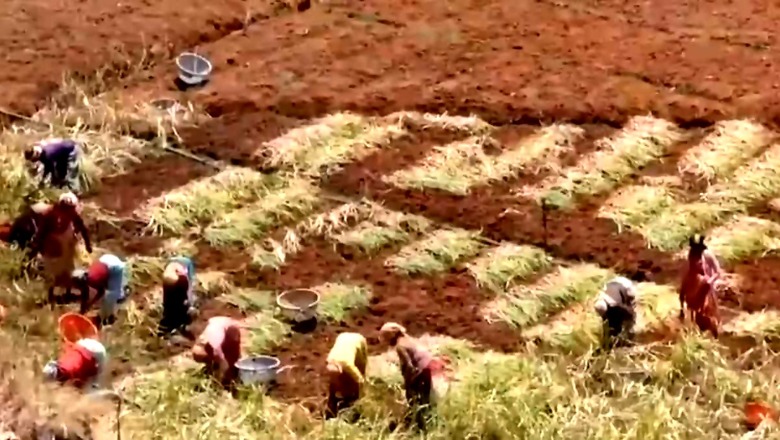
views
The Nilgiris district in Tamil Nadu is a hub for extensive tea cultivation but it also hosts a variety of other crops. Notably, vegetables like carrots, beetroot and garlic thrive here. Surrounding areas, particularly around Kudalur, witness substantial cultivation of coffee, bananas and paddy. A noteworthy aspect is the significance of Guru pepper, which serves as a vital intercrop in this region. In this news segment, we’ll delve into the methods of cultivating intercropped pepper, explore the quality of the pepper produced, and analyse its production costs.
This type of pepper develops within a betel vine-like plant. Initially, it’s planted in a pot within the soil and as it grows, it extends onto a nearby tree. Subsequently, it receives proper watering and fertilisation. The vine then expands around the tree, leading to the successful ripening of the green pepper.
By supplying appropriate fertilisation and consistently preserving nutrient levels through regular intervals, the pepper matures quickly. Once fully ripe, it’s collected and subjected to drying, resulting in what’s known as white pepper. This variety is presently being exported in significant volumes to other nations. Subsequently, the white pepper undergoes further thorough drying. Once completely dried, it takes on a black hue and becomes the type of pepper commonly utilized in our daily lives.
The cultivation of this pepper variety has its roots in the Nilgiris district, where it serves as an intercrop. Its growth is confined to specific regions like Kudalur, Coonoor, Kotagiri and similar areas. Furthermore, local farmers who engage in this cultivation emphasise that it isn’t the primary crop here. They explain that pepper plays a more central role in the agricultural practices of the neighbouring state of Kerala.
In addition, the price of pepper is established annually. When 6 kgs of pepper are harvested and dried, they shrink to just 1 kg in quantity. Unfortunately, farmers express disappointment over instances when birds cause damage to the pepper. These situations result in reduced profits for them.
The farmer said that over the past three days, the cost of black pepper has surged by Rs 38 per kg. As of Wednesday, the rates for garbled and ungarbled black pepper were Rs 656 and Rs 636 respectively. Experts attribute this significant price hike to shifts in weather patterns and insufficient rainfall, negatively affecting production and causing an unprecedented surge in prices.
There’s concern that the extensive destruction of pepper seeds might have repercussions on next year’s production. Additionally, reports suggest that the rapid price increase can be attributed to food manufacturing companies in North India accumulating stocks of black pepper.

















Comments
0 comment